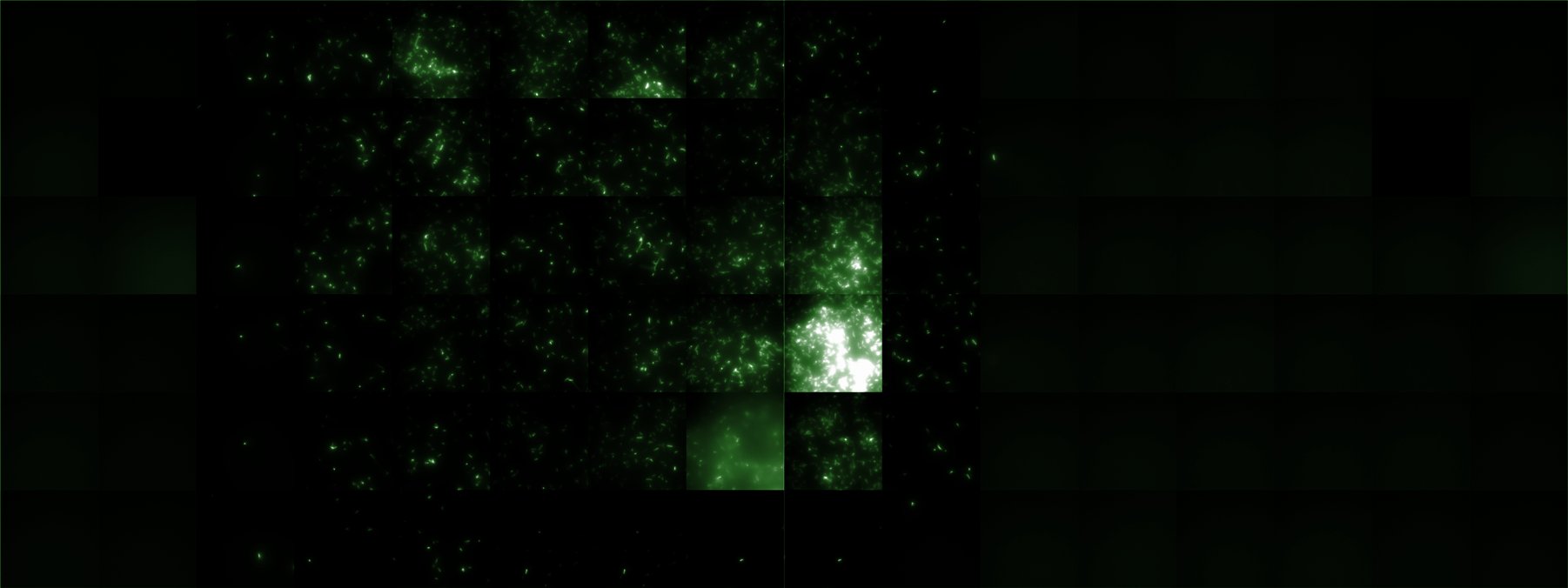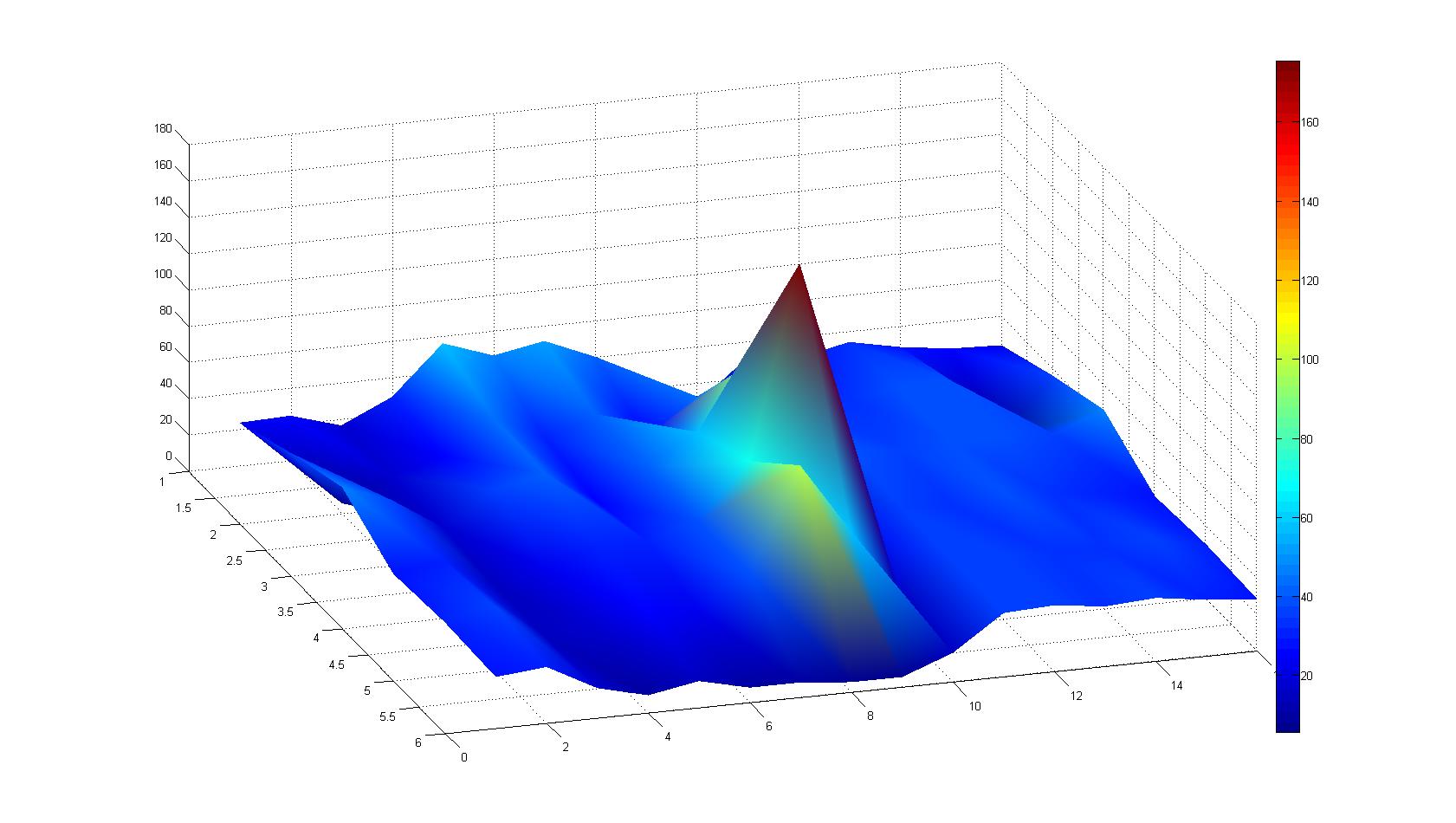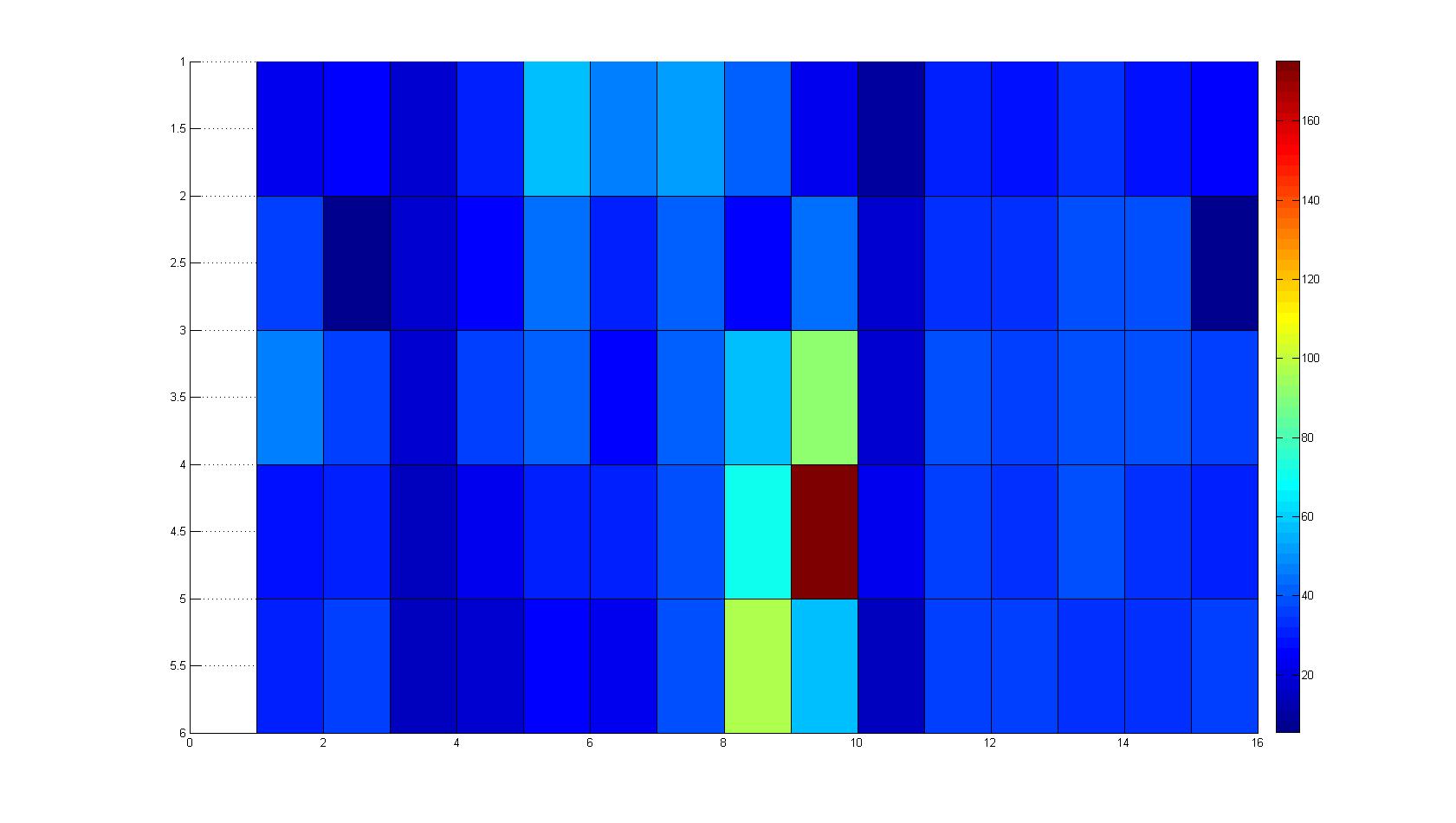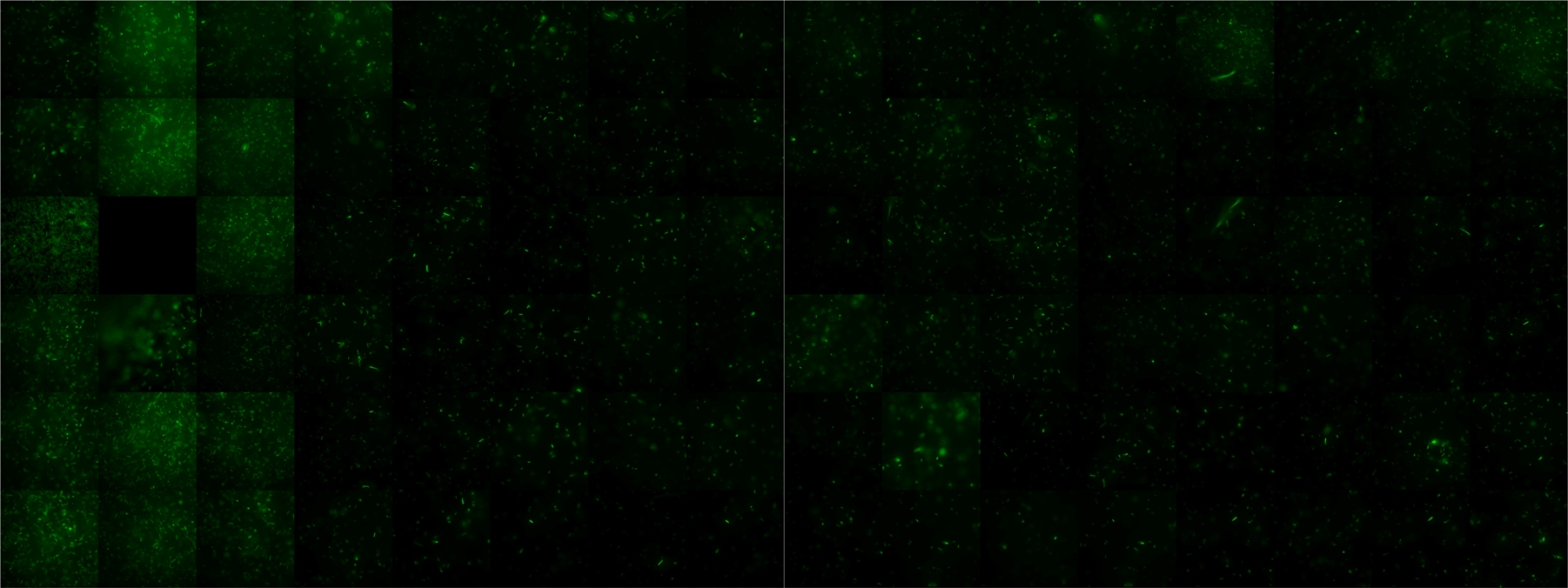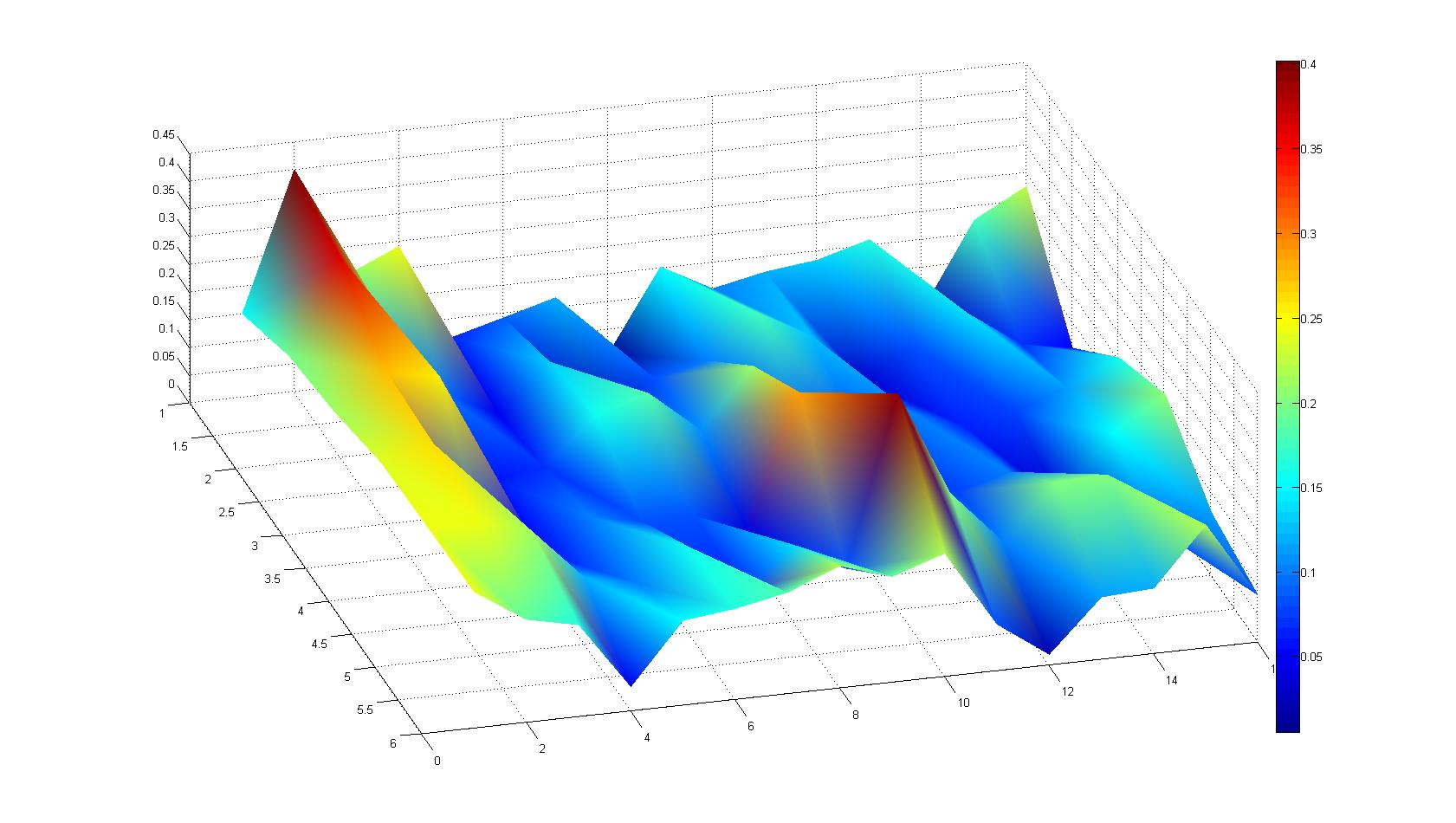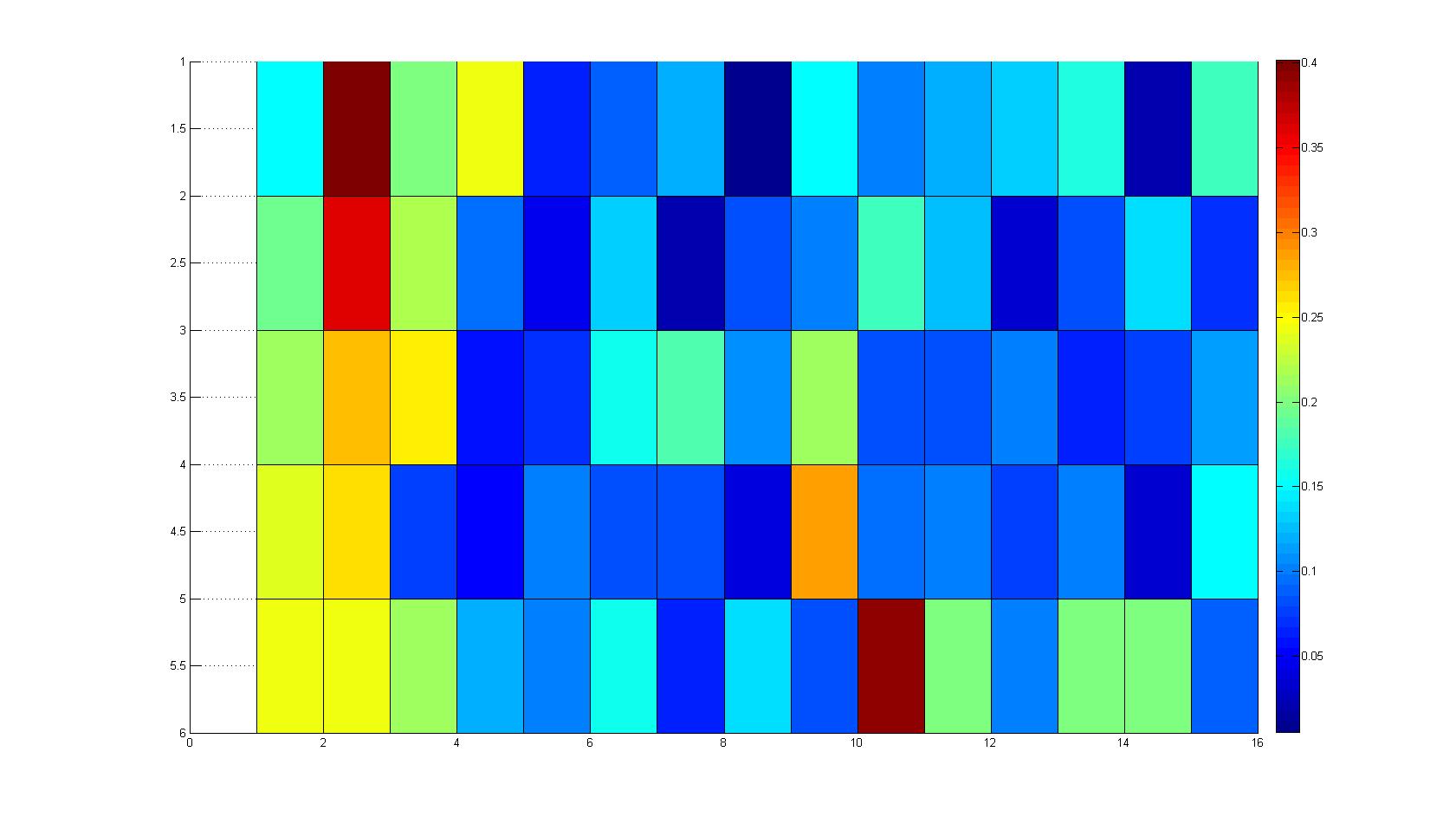Team:Heidelberg/Project/Visualization
From 2008.igem.org


Contents |
Killing - Colicin
Time series of killer and prey bacteria over 48 hours. Killer cells are marked with mCherry (red) and prey bacteria are marked with GFP (green). The intial ratio is 1:1, which can be recognized on the second and third frame (8h and 12h, respectively). Many prey and killer bacteria are grown after 38 hours (last three image frames). However, the faint green fluorescence (it is sharp!) indicates the weak prey metabolism due to the toxin. Toxin production and excretion is activated in killer bacteria by the signaling molecule autoinducer-1 (visit Project - Colicins for more biological information).
To see separate images click here
[back]
Microscopic Scanning and Quantification of 2D bacterial landscapes
A scan of the bacterial density in soft agar chamber (visit Notebook - Visualization for more technical information). For a proof of principle the chemotactic E. coli strain HCB33 is applied in the middle of the chamber. On the left side of the chamber is a 2% agar plug containing 10% of casamino acids. After ... hours the bacteria accumulate around the plug, because they sense the established gradient of amino acids. Calculation of the mean of each image and subtraction of the background leads to a quantitative 2D representation of the bacterial density landscape. This data can be compared to the 2D chemotactic modeling results based on a system of partial differential equations (visit Modeling - Chemotaxis/Colicins).
Remark: The scans are taken from two different experiments with equal settings due to the difficult adjustment of a constant focus.
| After 0 hours | |
| After ? hours | |
[back]
Sensing test of Fusion Receptor with 2D Microscopy
[back]
Sensing test of Fusion Receptor with Swarm Plates
[back]
 "
"
